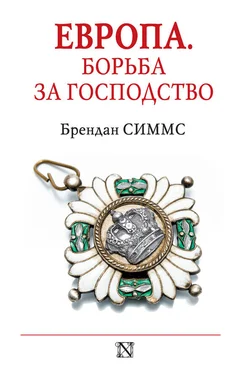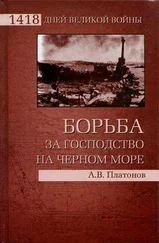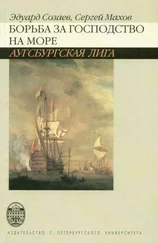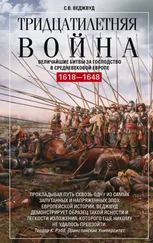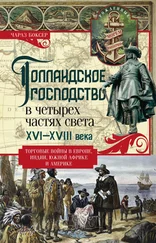Mathias Schulz, ‘A balancing act: domestic pressures and international systemic constraints in the foreign policies of the great powers, 1848–1851’, German History 21, 3 (2003), pp. 319–46 (quotation p. 326).
A. J. P. Taylor, The struggle for mastery in Europe, 1848–1918 (Oxford, 1971 [1954]), p. 37.
Schulz, ‘A balancing act’, p. 328.
Schulz, pp. 335–6, for quotations.
Frank Lorenz Müller, Britain and the German Question. Perceptions of nationalism and political reform, 1830–63 (Basingstoke, 2002), p. 153.
Lamartine’s ‘Manifesto to Europe’, in Alphonse de Lamartine, History of the French Revolution of 1848 (London, 1849), pp. 283–5.
«Германского колосса» ( фр .) . Примеч. ред.
Stauch, Im Schatten der heiligen Allianz, p. 73; Bastide is quoted in Jörg Ulbert, ‘France and German dualism, 1756–1871’, in Carine Germond and Henning Türk (eds.), A history of Franco-German relations in Europe. From ‘hereditary enemies’ to partners (Basingstoke, 2008), p. 44.
Liberalismus 1848/49’, Historische Zeitschrift, 275 (2002), pp. 333–83.
Tombs, France, p. 398.
R. J. W. Evans, ‘From confederation to compromise: the Austrian experiment, 1849–1867’, Proceedings of the British Academy, 87 (1995), pp. 135–67 (especially pp. 138–40).
Nikolaus Buschmann, Einkreisung und Waffenbruderschaft. Die öffentliche Deutung von Krieg und Nation in Deutschland, 1850–1871 (Göttingen, 2003), p. 191. Также: Kevin Cramer, The Thirty Years War and German memory in the nineteenth century (Lincoln, Nebr., and London, 2007), pp. 51–93 and 141–77.
Christian Jansen, Einheit, Macht und Freiheit. Die Paulskirchenlinke und die deutsche Politik in der nachrevolutionären Epoche, 1849–1867 (Dusseldorf, 2000), pp. 510–20 and 530–64.
Otto Pflanze, Bismarck and the development of Germany. The period of unification, 1815–1871 (Princeton, 1963), p. 72.
Efraim Karsh, Islamic imperialism. A history (New Haven, 2006), p. 97.
Taylor, Struggle for mastery in Europe, p. 61: ‘The real stake in the Crimean war was not Turkey. It was central Europe; that is to say Germany and Italy.’
Doering-Manteuffel, Vom Wiener Kongress zur Pariser Kon – ferenz, p. 215.
Müller, Britain and the German Question, p. 162.
В 1760-х гг. землемеры Ч. Мейсон и Д. Диксон провели линию, официально разделившую британские колонии Пенсильвания и Мэриленд; до Гражданской войны эта линия служила символической границей между Севером и Югом . Примеч. ред.
Kagan, Dangerous nation, p. 234.
Закон утвердил образование новых территорий (Канзас и Небраска) и открыл их для заселения . Примеч. ред.
Robert E. May, The Southern dream of a Caribbean empire, 1854–1861, 2nd edn (Gainesville, 2002), pp. 46–76. Связь территориальной экспансии с интересами южан в Конгрессе: pp. 11–12.
Paul W. Schroeder, Austria, Great Britain and the Crimean War. The destruction of the European Concert (Ithaca and London, 1972), especially pp. 423–4.
David Saunders, Russia in the age of reaction and reform, 1801–1881 (London and New York, 1992), p. 207.
Saunders, Russia in the age of reaction and reform, pp. 223–4.
О важности внешней политики для Великобритании в 1850-х годах: Adrian Brettle, ‘The enduring importance of foreign policy dominance in mid-nineteenth-century politics’, in Mulligan and Simms (eds.), Primacy of foreign policy in British history, pp. 154–66.
Parry, Politics of patriotism, p. 68.
Denis Mack Smith, Cavour (New York, 1985), p. 111 and passim.
Derek Beales, England and Italy, 1859–1860 (London, Edinburgh, etc., 1961), pp. 3–4.
Mack Walker (ed.), Plombières. Secret diplomacy and the rebirth of Italy (New York, London and Toronto, 1968), pp. 27–37, especially pp. 28–9.
О значении Германии: Franco Valsecchi, ‘European diplomacy and the expedition of the thousand. The conservative powers’, in Martin Gilbert (ed.), A century of conflict, 1850–1950. Essays for A. J. P. Taylor (London, 1967), pp. 49–72, especially pp. 54–65.
Michael J. Salevouris, ‘Riflemen form’. The war scare of 1859–1860 in England (New York and London, 1982), pp. 152–95.
D. M. Schreuder, ‘Gladstone and Italian unification, 1848–70: the making of a Liberal?’, The English Historical Review, LXXXV (1970), p. 475.
Mark Hewitson, Nationalism in Germany, 1848–1866 (Basingstoke, 2010), pp. 76–7.
Национальный союз ( нем .) . Примеч. ред.
Andreas Biefang, Politisches Bürgertum in Deutschland, 1857–1868. Nationale Organisationen und Eliten (Dusseldorf, 1994), pp. 66–79.
Knapp, Behind the diplomatic curtain, p. 270.
Народное ополчение . Примеч. ред.
Frank Lorenz Müller, ‘The spectre of a people in arms: the Prussian government and the militarisation of German nationalism, 1859–1864’, The English Historical Review, CXXII, 495 (2007), pp. 82–104 (quotation p. 85).
Hans-Christof Kraus, ‘Militärreform oder Verfassungswandel? Kronprinz Friedrich von Preussen und die “deutschen Whigs” in der Krise von 1862/63’, in Heinz Reif (ed.), Adel und Bürgertum in Deutschland. Vol. I: Entwicklungslinien und Wendepunkte im 19. Jahrhundert (Berlin, 2000), pp. 207–32.
Andreas Kärnbach, ‘Bismarcks Bemühungen um eine Reform des Deutschen Bundes 1849–1866’, in Oswald Hauser (ed.), Preussen, Europa und das Reich (Cologne and Vienna, 1987), pp. 199–221, especially pp. 207–8.
Jonathan Steinberg, Bismarck. A life (Oxford, 2011), p. 174.
May, The Southern dream of Caribbean empire, p. 237. В целом Мэй уделяет слишком мало внимания важности территориальной экспансии, которая привела к гражданской войне: pp. 242–3.
Читать дальше
Конец ознакомительного отрывка
Купить книгу
